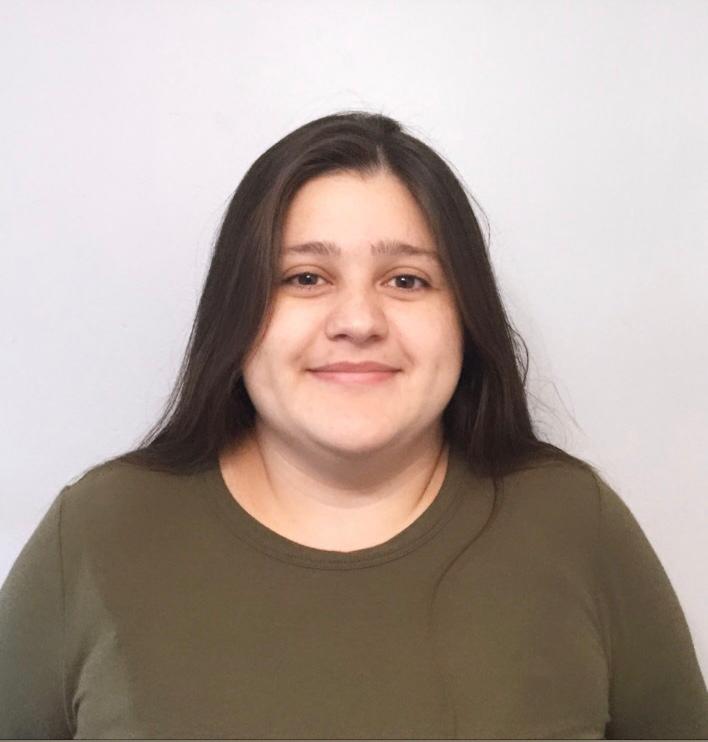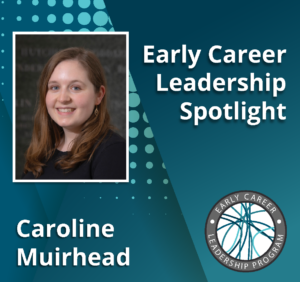We’re taking time to get to know the members of the GSA’s Early Career Scientist Committees. Join us to learn more about our 2021 early career scientist advocates.

Lucero Rogel-Hernandez
Policy and Advocacy Subcommittee
Stanford University
Research Interest
Medicinal plants have been and continue to be valuable sources for drug discovery. For centuries, humans have relied on Valeriana officinalis (commonly known as valerian) to treat sleep disorders, restlessness, and anxiety. The therapeutic effects ascribed to valerian root extracts are thought to arise from the presence and synergy of secondary metabolites (SMs), compounds synthesized by plants to persist in their environment. In nature, some SMs act as defense compounds to protect the plant from herbivores while others serve as signal compounds to attract pollinators and seed-dispersing animals. SMs influence the behavior of these organisms by acting as ligands to key players of the nervous and endocrine systems. Pharmacological targets for SMs often include cell surface receptors, ion channels, and transporters. In addition, many SMs and their derivatives are used in modern medicine as chemical entities with established applications. For instance, valproic acid (VPA), a compound derived from valerian, is widely prescribed to treat epilepsy and bipolar disorder, and is listed on WHO’s list of essential medications. The molecular mechanisms by which VPA and valerian SMs exert their therapeutic effects are poorly understood. Determining the mode of action for these compounds is something I am really interested in since it can provide insights into the development of new therapeutics that can promote mental health and well-being. Currently, I am focusing on dissecting the mode of action of VPA by using the nematode C. elegans as a chemosensor due to its defined nervous system, well-characterized behaviors, and ease of genetic manipulation. In the future, I plan to use this approach to further investigate the mechanisms of action of valerian SMs of interest.
As a PhD-trained scientist, you have many career options. What interests you the most?
I am really interested in pursuing a career in research and bioethics. I love science. I love reading and learning about new areas of research and trying to connect different concepts together. Research allows me to be creative when approaching a hypothesis or thinking about how to decipher how something came to be or how it functions. I also really enjoy learning and practicing new techniques. After obtaining my PhD, I would like to continue my evolution as a scientist by continuing in research, either in academia or industry. At the same time, I am also really into bioethics. I think that it is important as a society to think about the social implications of emerging technologies (i.e., gene drives, synthetic biology, AI, etc.) and to have open discussions surrounding the ethical use of these technologies. Bioethics is a field I would like to explore so that I can use my voice within the scientific community to guide public policy to ensure that new technologies can be developed and deployed in a responsible manner.
In addition to your research, how do you want to advance the scientific enterprise?
As a first generation student, something that I have always been passionate about is engaging and supporting younger students with similar backgrounds who are interested in pursuing STEM. As an undergraduate at UCSC and currently as a graduate student at Stanford, I have really enjoyed working one on one with a diverse group of students through a variety of programs and in different stages of their academic journeys. As a mentor I have had the opportunity to share with them my experiences, offer advice and guidance, and even teach them what I have learned from my own mentors. At the same time, I have learned so much from them, such as their thoughts and perspectives on science, their different identities, their motivation for pursuing STEM and the issues they want to address in their own communities. Through my experiences with them, I have come to value the importance of making STEM fields more accessible, inclusive, and diverse. I hope that by continuing to mentor individuals, eventually my own mentees will do the same and together we can push for making academia more diverse and inclusive.
As a leader within the Genetics Society of America, what do you hope to accomplish?
As an early career scientist within the GSA, I aspire to develop my confidence and communication skills to effectively participate in discussions around science and science policy. I look forward to continuing to work with like-minded peers on a variety of science policy and professional development related projects. I also plan to use this opportunity to strengthen my writing skills by participating in the newsletter and the committee’s interview series and learning how to draft a variety of documents relevant in the field of public policy, such as policy memos, op-eds, and congressional testimonies. I hope to continue to build my network and identify mentors within the committee to learn from them about their experiences/perspectives on navigating the science policy world and how to be a more involved/engaged scientist.
Previous leadership experience
Stanford University-Dept. of Molecular and Cellular Physiology-Graduate Admissions Committee Member
Stanford ADVANCE Undergraduate Institute Mentor
Stanford Biosciences Diversity Host
Stanford Biosciences ADVANCE Summer Institute Fellow
UCSC-NIH Post-BACC Research Education Program Fellow














